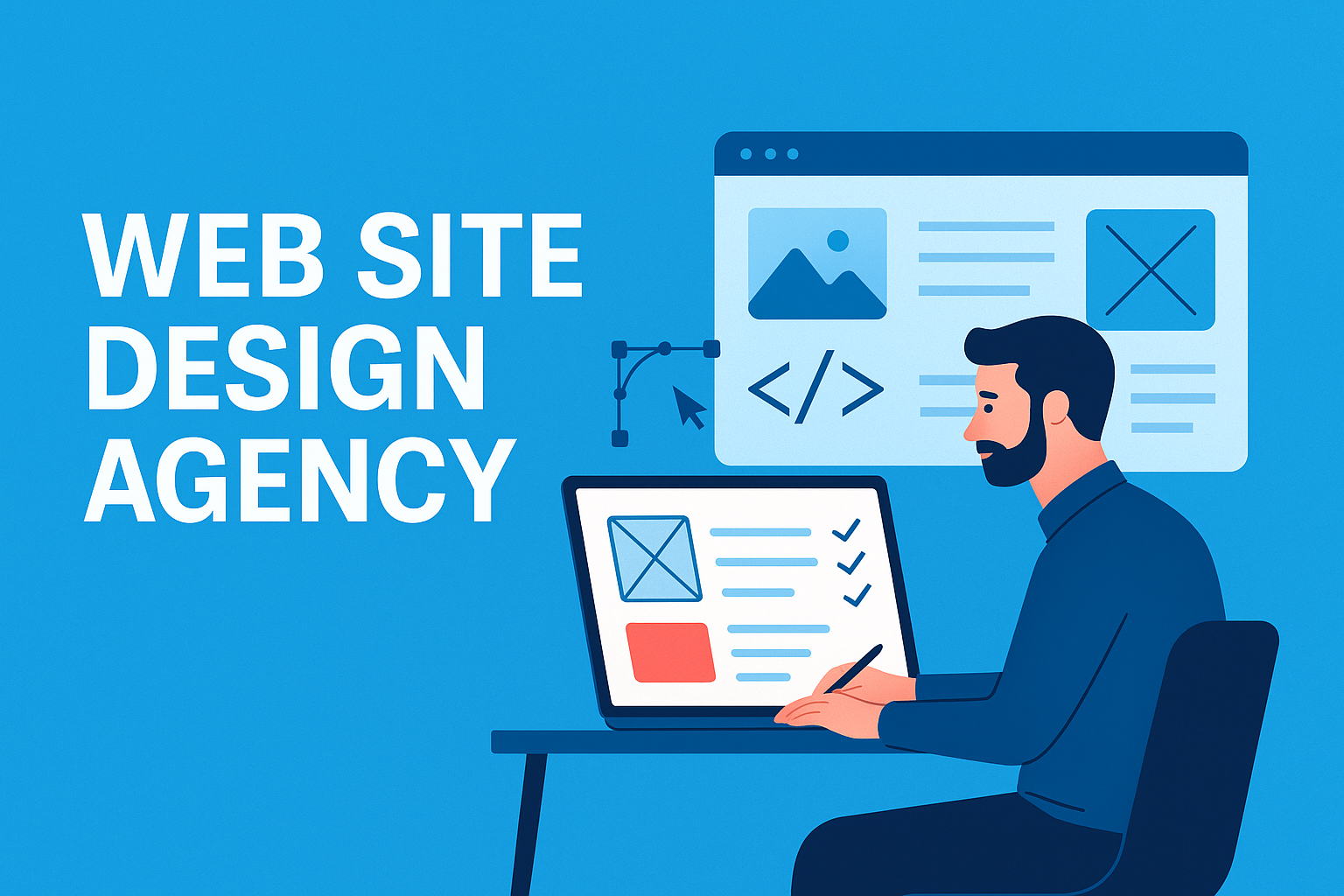
web site design agency
Understanding the Role of a Web Site Design Agency
What Defines a Web Site Design Agency?
A web site design agency specializes in crafting visually appealing, user-friendly websites that align with a brand’s identity and business goals. Unlike freelance designers or developers, a web site design agency typically operates as a full-service firm, providing tailored solutions that encompass graphic design, user experience (UX), user interface (UI), and front-end development. The agency collaborates with clients to create websites that not only look stunning but also function seamlessly across devices and platforms.
At its core, a web site design agency integrates creativity, technology, and strategic planning to deliver digital experiences that engage audiences and drive business growth. From startups to established enterprises, many organizations rely on these agencies for their expertise in building reputable online presences.
Key Services Offered by a Web Design Agency
Modern web site design agencies offer a wide range of services that extend beyond just website aesthetics. Their core offerings typically include:
- Custom Web Design: Creating unique, brand-aligned website layouts and graphics.
- UI/UX Design: Designing interfaces that enhance usability and maximize user engagement.
- Responsive Design: Ensuring websites function flawlessly on desktops, tablets, and smartphones.
- Content Management System (CMS) Integration: Implementing platforms like WordPress, Drupal, or Joomla for easy client content updates.
- Search Engine Optimization (SEO): Incorporating best practices within the design to boost search rankings.
- E-commerce Solutions: Developing online stores with secure payment gateways and intuitive navigation.
- Website Maintenance & Support: Providing updates, security patches, and ongoing optimization.
These comprehensive services highlight why partnering with a seasoned web site design agency is critical for maintaining a competitive digital presence.
Differences Between Web Site Design Agency and Web Development Firms
While closely related, web site design agencies and web development firms have distinct areas of focus:
| Aspect | Web Site Design Agency | Web Development Firm |
|---|---|---|
| Primary Focus | Visual design, user experience, brand identity | Website functionality, backend systems, coding |
| Skills | UI/UX design, graphic design, prototyping | Programming languages (e.g., JavaScript, PHP), database management |
| Deliverables | Website mockups, wireframes, design assets | Website code, functionality, integrations |
| Role in Project | Creating engaging interfaces and layouts | Building the underlying architecture |
Many agencies bridge both design and development, offering full-stack services for seamless project execution.
Importance of UX/UI in Modern Website Design
In today’s digital landscape, the significance of UX (user experience) and UI (user interface) design cannot be overstated. A web site design agency places heavy emphasis on UX/UI to ensure visitors have intuitive, efficient interactions with a website. Key reasons UX/UI matter include:
- Improved Engagement: Clear navigation and attractive interfaces keep visitors exploring longer.
- Higher Conversion Rates: Thoughtful design guides users toward desired actions (e.g., sign-ups, purchases).
- Brand Credibility: Polished UX/UI fosters trust and professionalism.
- Accessibility: Ensures the website is usable by people with disabilities.
Effective UX/UI design combines aesthetics with functionality, which is why partnering with a specialized web site design agency focused on these elements is vital to business success.
Choosing the Right Web Site Design Agency for Your Business
Evaluating Portfolio and Case Studies
When selecting a web site design agency, analyzing their portfolio is paramount. Reviewing past projects helps gauge the agency’s capability to deliver creativity, responsiveness, and industry relevance. Essential aspects to consider include:
- Design Diversity: Range of styles and industries served.
- Technical Sophistication: Use of modern design trends and technology.
- Client Objectives: How effectively the site meets business goals.
- Case Studies: Detailed narratives showing challenges, approach, and outcomes.
Many agencies provide comprehensive case studies highlighting their problem-solving skills. For more information on evaluating agencies, check our guide on web design agency selection.
Client Testimonials and Reputation Analysis
Another critical factor in choosing a web site design agency is assessing client feedback. Testimonials and reviews offer insight into the agency’s professionalism, communication, and post-launch support. When examining reputation:
- Look for consistent positive reviews across platforms (Google My Business, Clutch, LinkedIn).
- Seek examples of long-term client relationships.
- Consider agencies accredited by industry bodies or recognized with awards.
- Request references to personally verify client experiences.
Agencies with transparent communication and stellar reputations often indicate reliable partnerships.
Assessing Expertise in Responsive and Mobile-Friendly Design
With over half of web traffic originating from mobile devices, choosing a web site design agency proficient in responsive design is imperative. Responsive websites adjust layouts dynamically to different screen sizes, providing optimal user experience on smartphones, tablets, or desktops.
When vetting agencies, consider:
- If their portfolio showcases mobile-friendly projects.
- Their approach to testing across device types and browsers.
- Use of frameworks such as Bootstrap or Foundation that simplify responsiveness.
- Adherence to Google’s mobile-first indexing policies.
Prioritizing mobile responsiveness ensures a wider reach and improved SEO rankings.
Questions to Ask Your Prospective Web Design Agency
Engaging with a web site design agency requires asking strategic questions to assess compatibility and expertise. Important inquiries include:
- What is your typical project workflow and timeline?
- How do you incorporate SEO and accessibility in your designs?
- Can you provide examples of similar projects in my industry?
- What tools and technologies do you use for design and development?
- How do you handle revisions and client feedback?
- Do you offer post-launch support and maintenance?
These questions help establish clear expectations and identify agencies aligned with your business objectives.
Key Features of a Professional Web Site Design Agency
Customized Web Design Solutions Tailored to Brand Identity
A hallmark of a reputable web site design agency is its ability to deliver customized web design solutions that resonate with a brand’s unique identity. Generic templates often fail to communicate a company’s values and distinctiveness. Leading agencies emphasize:
- Brand storytelling through visuals.
- Color schemes, typography, and graphic elements matching brand guidelines.
- Interactive features aligned with target audience preferences.
- Consistent user experience that reinforces brand loyalty.
Custom design fosters differentiation in crowded markets and strengthens customer connection.
Integration of SEO Best Practices in Web Design
SEO is integral to attracting organic traffic, and a professional web site design agency integrates SEO best practices from the ground up. Key integration points include:
- Optimized site architecture facilitating crawlability.
- Use of semantic HTML tags for enhanced search engine understanding.
- Fast-loading pages through optimized images and code minification.
- Mobile-friendly design compliant with Google’s algorithms.
- Meta tags, alt texts, and schema markup inclusion.
Collaborating with an agency that balances aesthetics with SEO strategy maximizes online visibility and ROI.
Utilizing Latest Web Design Technologies and Tools
Staying current with evolving technology trends is another defining feature of a top-tier web site design agency. Utilizing modern platforms and tools such as:
- Design software like Adobe XD, Figma, Sketch for prototyping.
- Content management systems (CMS) offering flexibility and scalability.
- CSS Grid, Flexbox, and JavaScript frameworks for dynamic layouts.
- Performance testing tools and version control systems like Git.
Employing cutting-edge technology ensures websites are fast, secure, and future-proofed.
Ongoing Website Maintenance and Support Services
Beyond the initial launch, a reliable web site design agency offers continuous maintenance and support to safeguard website health. Maintenance services typically cover:
- Software and plugin updates.
- Security monitoring and vulnerability fixes.
- Content updates and design tweaks.
- Performance optimization and analytics reporting.
Ongoing support helps businesses stay competitive with evolving digital standards and user expectations.
Benefits of Hiring a Specialized Web Site Design Agency
Enhancing User Engagement Through Effective Design
Partnering with a specialized web site design agency significantly boosts user engagement by delivering compelling visual narratives and intuitive navigation. Effective design entices visitors to explore content, thereby reducing bounce rates. Agencies leverage psychology, color theory, and interaction design principles to keep users connected and coming back.
Boosting Website Performance and Loading Speed
Website speed directly impacts user satisfaction and search engine rankings. Experienced web site design agencies optimize site performance by:
- Minimizing HTTP requests.
- Compressing images and assets.
- Leveraging content delivery networks (CDNs).
- Implementing caching mechanisms.
A well-optimized website loads faster, improving accessibility and conversion potential.
Improving Conversion Rates with Strategic Layouts
Conversion-focused design is a specialty of professional web site design agencies. They strategically position calls-to-action (CTAs), trust signals, and content hierarchy to guide visitors toward desired outcomes such as purchases, inquiries, or subscriptions. By analyzing user behavior and A/B testing layouts, agencies continually refine designs to maximize conversions.
Ensuring Cross-Browser and Device Compatibility
Given the variety of browsers (Chrome, Firefox, Safari, Edge) and devices accessing the internet, ensuring compatibility is crucial. A skilled web site design agency rigorously tests websites across multiple environments, addressing rendering issues or functionality disparities. This comprehensive approach guarantees a uniform user experience irrespective of technology used.
Exploring Web Site Design Agency Options: From Local to Global
Top Web Site Design Agencies in New York and Major Cities
For businesses located in metropolitan hubs such as New York, leading web site design agencies provide extensive local expertise combined with global standards. These agencies often boast:
- Broad industry experience serving diverse sectors.
- Access to multidisciplinary teams including designers, developers, and strategists.
- Proximity allowing for in-person collaboration and workshops.
To explore options specifically in New York, visit our curated directory of web design agencies in New York.
Comparing Freelancers vs Agency Services
Choosing between freelancers and a web site design agency depends on project scope and budget. Key differences include:
| Criteria | Freelancer | Web Site Design Agency |
|---|---|---|
| Team Size | Individual | Multi-disciplinary teams |
| Project Scale | Small to medium projects | Large and complex projects |
| Support & Maintenance | May be limited | Comprehensive ongoing support |
| Expertise Range | Niche skillset | Wide range of skills and technologies |
For businesses aiming for scalable, polished digital solutions, partnering with a dedicated web site design agency provides a strategic advantage.
How to Leverage Agency Networks for International Projects
Expanding online presence globally often entails collaborating with agencies that have international reach or partnerships. A reputable web site design agency can facilitate this by:
- Providing multilingual website design services.
- Understanding diverse cultural design preferences and regulatory requirements.
- Coordinating with overseas teams to maintain consistency and quality.
- Offering cloud-based project management for seamless collaboration across time zones.
Leveraging agency networks enables businesses to execute international projects efficiently and effectively.
Pricing Models and Contracts for Web Site Design Services
Understanding pricing structures is essential when hiring a web site design agency. Common models include:
- Fixed Price: Predetermined cost based on project scope.
- Hourly Rate: Billed according to time spent on design and development.
- Retainer: Ongoing monthly fee for continuous support and updates.
- Value-Based Pricing: Cost linked to the business value delivered.
Contracts typically outline deliverables, milestones, payment terms, and intellectual property rights. Clients should ensure clarity to avoid scope creep and protect their interests.
Frequently Asked Questions about Web Site Design Agencies
Q: How long does it typically take for a web site design agency to complete a project?
A: Project timelines vary, but most agencies deliver standard websites within 6 to 12 weeks depending on complexity, revisions, and content readiness.
Q: Can a web site design agency help improve my existing website?
A: Absolutely. Agencies provide redesign and optimization services including UX enhancements, SEO improvements, and performance upgrades.
Q: Do web site design agencies offer training on website management?
A: Many agencies include training on CMS platforms, enabling clients to update content autonomously post-launch.
Q: What industries do web site design agencies typically serve?
A: Agencies work across various sectors including retail, healthcare, finance, education, and nonprofits, tailoring solutions to industry-specific needs.
If you’re looking to partner with a trusted industry expert, explore our comprehensive directory of web site design agency services tailored to your goals.


